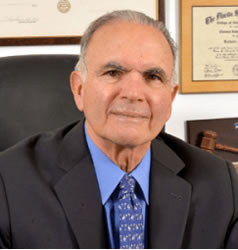I was asked by a state medical licensing board to evaluate the practice of a primary care physician in regards to their oversight of opioid analgesics.
I was initially asked to review the records of six patients, each spanning an approximate two-year interval. All the patients in the review were being treated with high dose opioid therapy in conjunction with daily benzodiazepine use. My findings identified serious aberrant events in the majority of the cases reviewed. Among the aberrancies that raised concern included episodes of DUI events in several of the patients in question, recurrent episodes of lost/stolen medication, inappropriately long intervals between office visits (as long as fifteen months), absence of prescribed medications in random urine toxicology studies, descriptions of overt drug seeking behavior and evidence of patients repeatedly abusing ethanol while simultaneously utilizing high doses of controlled substances.
I provided the licensing board with a report detailing my findings in each of the six cases I reviewed. I also provided them with a detailed list of references from the medical literature to establish a basis for determining standard of care regarding the oversight of controlled substances during the time interval the care was rendered. Standard of care surrounding the stewardship of controlled substances has been evolving for that past 20+ years. Given that the standard of care has changed over time, it was important to provide the licensing board with references that reflected the standards applicable to the relevant time frames the care in question was rendered. Based on the findings in my review, and comparing the care provided with the standard in place at the time, I determined that a severe deviation from standard of care occurred in 2 of the 6 cases and a moderated deviation from standard of care occurred in an additional 2 of the 6 cases. I determined that the provider did not have the adequate skills to identify patients with substance use disorders and such patients took advantage of this deficit in order to procure drugs of abuse from their practice.
I was contacted by the licensing board approximately two years after my initial review in this case and I was asked to review additional documents and records. The board asked me to review a transcript of an interview they had conducted with the provider in question, relevant documents the provider had supplied to the board and an additional two years’ worth of records for each of the six patients I had previously reviewed. The interview transcript and other documents provided demonstrated that the provider had sought out additional training that had significantly transformed their practice regarding controlled substances. My review of the more contemporaneous medical records demonstrated that the provider had substantially remediated their oversight of controlled substances. In the two-year interval since the initial review, this provider had made substantive improvements in their practice and was now largely in compliance with relevant standard of care practices in their oversight of controlled substances.
I generated a second report to the licensing board based on the findings from the additional records I had been provided. I advised them that the problems I identified in my initial report seemed to have been an isolated deficit that the provider had now substantially remediated. In the report, I cited the positive changes that the provider had made in their oversight of controlled substances. These changes included the introduction of buprenorphine into their practice for patients identified with substance use disorders along with a global improvement in stewardship of controlled substances. The most contemporaneous records indicated that the provider was now in broad compliance with the standard of care regarding the oversight of controlled substances.
The reviews I conducted and reports that I generated assisted the licensing board in their investigation and oversight of this matter. The communities’ needs were well served as this provider became a more competent steward of controlled medications over time. Simultaneously, the provider was afforded the opportunity to remediate an isolated deficit in their practice without unwarranted interruption in their ability to continue to practice medicine. The input I provided facilitated the licensing board’s ability to bring this case to a favorable outcome on all fronts.
Dr. Joel L. Kent, MD, is an expert in all realms of Pain Medicine and has focused expertise in the prescribing and oversight of opioid analgesics. His specialties include acute and chronic pain management, opioid analgesics, interventional pain management therapies, spinal cord stimulation, intrathecal drug delivery, RSD/CRPS and low back pain. Dr. Kent has provided expert case reviews and testimony for over twenty years. The majority of his expert work has focused on the standard of care in the practice of Pain Medicine and the use of opioid analgesics. Dr. Kent has provided expert case opinions in Federal and State civil courts.
©Copyright - All Rights Reserved
DO NOT REPRODUCE WITHOUT WRITTEN PERMISSION BY AUTHOR.











